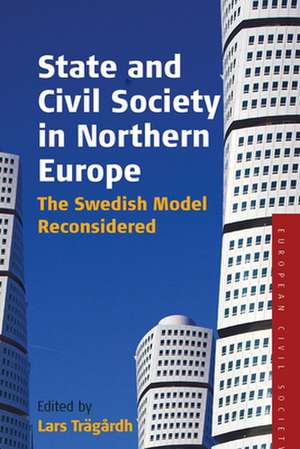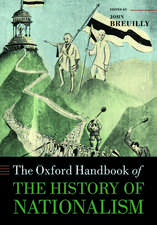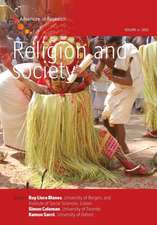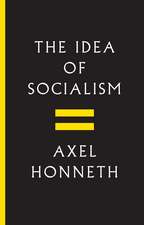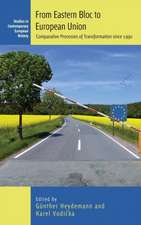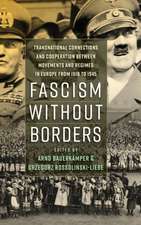State and Civil Society in Northern Europe: The Swedish Model Reconsidered: European Civil Society
en Limba Engleză Hardback – 31 dec 2006
Preț: 751.25 lei
Preț vechi: 975.65 lei
-23% Nou
Puncte Express: 1127
Preț estimativ în valută:
143.75€ • 150.47$ • 119.65£
143.75€ • 150.47$ • 119.65£
Carte tipărită la comandă
Livrare economică 31 martie-14 aprilie
Preluare comenzi: 021 569.72.76
Specificații
ISBN-13: 9781845451875
ISBN-10: 1845451872
Pagini: 296
Dimensiuni: 159 x 22 x 238 mm
Greutate: 0.57 kg
Editura: BERGHAHN BOOKS INC
Seria European Civil Society
ISBN-10: 1845451872
Pagini: 296
Dimensiuni: 159 x 22 x 238 mm
Greutate: 0.57 kg
Editura: BERGHAHN BOOKS INC
Seria European Civil Society
Notă biografică
Lars Tragardh, formerly with the History Department at Barnard College, is directing a research project concerning state/civil society relations in Sweden at the Skondal Institute in Stockholm. His most recent publications include (as editor with Nina Witoszek) Culture and Crisis: The Case of Germany and Sweden (Berghahn Books, 2002) and After National Democracy: Rights, Law and Power in America in the New Europe (Hart Publishing, 2004).
